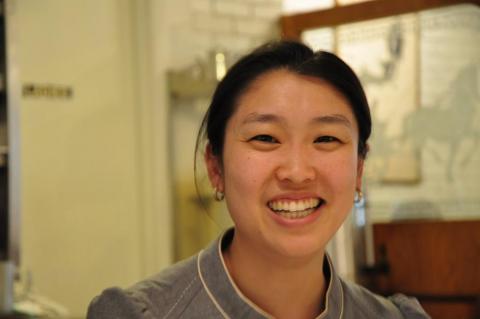Denise Ho is an historian of modern China, with a particular interest in the history of the People’s Republic of China. Her dissertation, Antiquity in Revolution: Cultural Relics in Twentieth-Century Shanghai, studies how cultural relics, or wenwu, were defined from China’s Republican period (1912-1949) through the People’s Republic (1949-) into the present day. While China’s imperial rulers used cultural relics to demonstrate legitimate succession, the paradox facing any new regime in the twentieth century was that its claim to political legitimacy was based on both revolution and historical continuity. Taking Shanghai as its case study, Antiquity in Revolution examines this political tension through the authentication, nationalization, and display of cultural relics. This history of the city’s arts and monuments explores how such relics have produced and supported national narratives. Professor Ho is currently revising the manuscript of her first book, which is entitled Curating Revolution: Politics on Display in Mao's China.
Before joining the history department at the University of Kentucky, Professor Ho was a visiting lecturer at the Massachusetts Institute of Technology and a teaching fellow at Harvard. At Harvard, she taught Chinese history in the Core curriculum, the history department, and the extension school, and was awarded the Certificate of Distinction in Teaching.
Denise Ho has lived and studied extensively in China. From 2000-2002, she was a teacher at the Yali Middle School in Changsha, Hunan Province. In 2006-2007, she conducted her dissertation research at the Shanghai Academy of Social Sciences as a grantee of the Fulbright Fellowship.
Professor Ho's research and writing appears in The China Quarterly, Frontiers of History in China, and China Review International. She has also contributed short articles and blogs to The China Beat, In the Service of Clio, The Lexington Herald-Leader, and The Kentucky Kernel.
Areas of Specialization
Social and cultural history of modern China.

